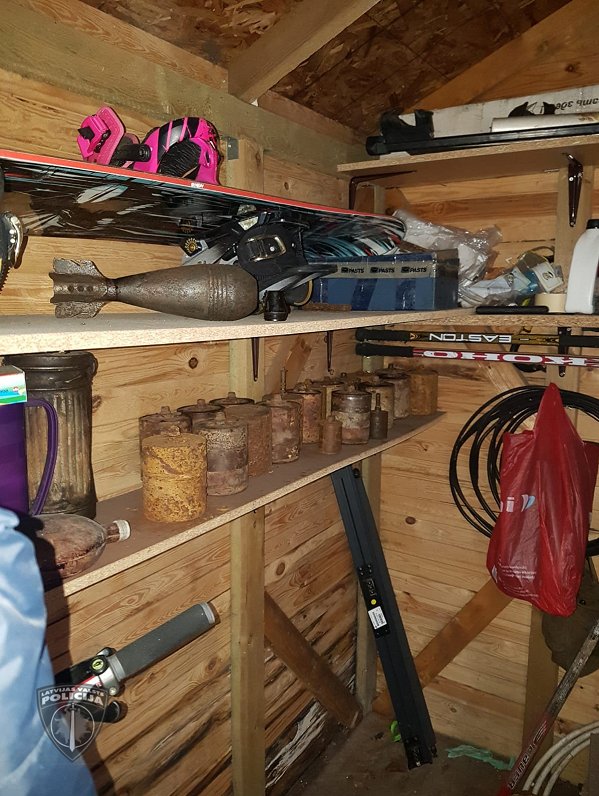Due to safety precautions, the parcels were already withdrawn at the sorting complex without reaching their addressees.
At the beginning of the year, the Rīga Airport department of the Riga Municipal Police (VP RRP) received information about an individual who was possibly sending war-time munitions and explosives without special permission.
In the course of the investigation, it was revealed that a Latvian citizen born in 1972 had repeatedly sent explosives from the First- and Second-World Wars to potential buyers outside Latvia using the postal system.
The individual had listed the items on international online stores, parcelled them and delivered them to small post offices, indicating that the parcels contained other items than their true contents. Later, when the parcels arrived at the mail sorting complex, it was established with the help of an x-ray that they might contain explosives.
On May 22, police, together with the counterterrorism unit "Omega", the Forensic Service Department unit, and the Jūrmala department unit raided the suspect's home in Jūrmala.
In the course of the raid, the police found a large number of First- and Second-World War explosives and parts on the second floor, in the annex, and the garage of the building.
Experts from the Forensic Service Department of State Police and the bomb disposal team of the Latvia National Armed forces were assigned to carry out an examination of the items.
Overall, 150 explosive mechanisms, more than 50 mines and their component parts, more than 60 grenades and their shells, as well as other gun parts and munition were expropriated. More than 20 more items suspected to be explosives have been sent to be examined.
The suspected individual, who does not have a criminal record, was detained during the raid.
It is suspected that the detainee was involved in "black archaeology", although the precise sites where he might have exhumed the items remain unknown.
Latvia happens to be a particularly rich site for "black archaeology" owing o the many battles fought on its territory in both world wars.
Because of the incident, criminal proceedings against the illegal possession, production, transportation, and use of munition have been initiated. Penalty for such transgressions may range from a three year prison sentence or a temporary imprisonment to forced labor, or a fine.
The detainee is not allowed to leave the country.



























